
INDIAN JOURNAL OF AGRICULTURAL SCIENCES
Scope & Guideline
Nurturing insights for a greener tomorrow.
Introduction
Aims and Scopes
- Crop Management and Agronomy:
Research on various aspects of crop management, including planting techniques, nutrient management, irrigation practices, and crop rotation strategies to optimize yield and resource use. - Plant Genetics and Breeding:
Studies focused on genetic variability, breeding techniques, and the development of high-yielding, pest-resistant, and climate-resilient crop varieties. - Pest and Disease Management:
Research on integrated pest management strategies, biological control agents, and the efficacy of various pesticides and fungicides to combat agricultural pests and diseases. - Soil Science and Fertility:
Investigations into soil properties, nutrient dynamics, and sustainable soil management practices to enhance soil health and fertility. - Sustainable Agriculture Practices:
Research promoting sustainable farming practices, including organic farming, conservation agriculture, and resource-efficient technologies to mitigate environmental impacts. - Post-Harvest Technology:
Studies on post-harvest management techniques, storage solutions, and value addition to enhance the shelf life and quality of agricultural produce. - Climate Change Adaptation:
Research addressing the impacts of climate change on agriculture and strategies for adaptation and resilience in farming systems. - Economic and Policy Studies:
Analysis of agricultural economics, market dynamics, and policy implications to support farmer livelihoods and food security.
Trending and Emerging
- Precision Agriculture:
There is a growing trend towards precision agriculture techniques that utilize technology and data analytics to optimize farming practices, improve resource use efficiency, and enhance crop yields. - Climate Resilience and Adaptation:
Research addressing the impacts of climate change and developing resilient agricultural practices has gained prominence, reflecting the urgency of adapting agriculture to changing environmental conditions. - Biotechnology and Genetic Engineering:
An increase in studies focusing on biotechnological applications, including genetic modification and molecular breeding techniques to develop improved crop varieties and enhance stress tolerance. - Sustainable Water Management:
Emerging research on efficient water management practices, including drip irrigation and rainwater harvesting, as water scarcity becomes a critical issue for agriculture. - Soil Health and Microbial Diversity:
There is an increasing focus on soil health management and the role of microbial communities in enhancing soil fertility and plant health, reflecting a shift towards holistic agricultural practices. - Integrated Pest Management (IPM) Innovations:
Innovative approaches to IPM that incorporate biological control, resistant varieties, and eco-friendly pesticides are trending as sustainable solutions to pest management. - Nutrient Management Strategies:
Research on integrated nutrient management practices that optimize the use of fertilizers and organic amendments to improve crop productivity and soil health.
Declining or Waning
- Traditional Farming Practices:
There is a noticeable decline in publications focusing on traditional farming methods, as more emphasis is placed on modern techniques and technologies that promise higher efficiency and sustainability. - Basic Agricultural Science:
Research that is purely theoretical or basic science without direct implications for agriculture is becoming less common, as the journal increasingly prioritizes applied research with practical applications. - Local Crop Varieties:
The focus on indigenous or local crop varieties appears to be waning, possibly as researchers shift towards globally recognized high-yielding varieties that can be more easily standardized and marketed.
Similar Journals

Revista Brasileira de Ciencias Agrarias-Agraria
Connecting researchers to cultivate a thriving agricultural community.Revista Brasileira de Ciencias Agrarias-Agraria is an esteemed academic journal published by the Universidade Federal Rural de Pernambuco, dedicated to advancing the field of agricultural and biological sciences. With a focus on disseminating high-quality research, this journal plays a pivotal role in fostering knowledge exchange within the agricultural community, particularly in Brazil and beyond. As a Q3 ranked publication in the Agricultural and Biological Sciences category, Revista Brasileira de Ciencias Agrarias-Agraria contributes to the growing body of literature by featuring insightful articles from both emerging and established researchers in the field. The journal has been consistently published since 2011 and is committed to open access principles, ensuring that research findings are accessible to a wide audience. Researchers, professionals, and students will find this journal an invaluable resource for deepening their understanding of current trends and innovations in agriculture.
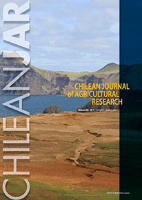
Chilean Journal of Agricultural Research
Fostering innovation in crop science and zoology.Chilean Journal of Agricultural Research, published by INST INVESTIGACIONES AGROPECUARIAS - INIA, is a premier academic journal dedicated to the advancement of knowledge in the fields of Agronomy, Crop Science, Animal Science, and Zoology. With an ISSN of 0718-5839, this journal serves as a vital resource for researchers, professionals, and students alike, facilitating the dissemination of impactful research from Chile and around the globe. Classified as a Q2 journal in both Agronomy and Crop Science and Animal Science and Zoology as of 2023, it occupies a significant position in academic rankings, highlighted by its Scopus metrics, which recognize its contributions to the field. The journal operates under an Open Access model, ensuring that valuable research is accessible to a wider audience, thereby promoting innovation and collaboration. With a converged publication timeline from 2008 to 2024, the Chilean Journal of Agricultural Research continues to enhance understanding and foster advancements in agricultural science, thus playing an instrumental role in addressing contemporary challenges in food security and sustainable practices.

International Journal of Plant Production
Fostering dialogue and discovery in agronomy and crop science.International Journal of Plant Production, published by SPRINGER in Switzerland, serves as a leading platform for the dissemination of innovative research in the fields of Agronomy, Crop Science, and Plant Science. With an ISSN of 1735-6814 and an E-ISSN of 1735-8043, this journal has maintained its reputation by achieving a Q2 quartile ranking in both categories as of 2023, alongside notable Scopus rankings placing it in the top quartiles of its fields (Rank #105/516 and Rank #88/406, respectively). The journal's scope encompasses a wide array of topics vital to sustainable agriculture and plant production systems, making it a critical resource for researchers, professionals, and students striving for advancements in these disciplines. By fostering open scientific dialogue and supporting cutting-edge research, the International Journal of Plant Production is committed to contributing to the resolution of global food security challenges, enhancing agricultural practices, and promoting ecological sustainability.
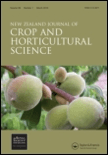
NEW ZEALAND JOURNAL OF CROP AND HORTICULTURAL SCIENCE
Transforming Agriculture with Cutting-edge ResearchThe New Zealand Journal of Crop and Horticultural Science, published by Taylor & Francis Ltd, stands as a key resource in the fields of Agronomy and Horticulture, with a commendable impact factor reflecting its quality and influence in the scientific community. Since its inception in 1989, this journal has been committed to advancing our understanding of crop development and horticultural practices, catering not only to researchers and professionals but also to students eager to delve into the intricacies of plant sciences. With a Q3 ranking in both Agronomy and Crop Science and Horticulture as of 2023, the journal occupies a significant position within the agricultural and biological sciences domain, significantly contributing to the body of knowledge in these fields. The journal features original research, reviews, and technical notes that cover a wide range of topics, ensuring a comprehensive perspective on contemporary and emerging agricultural issues. For individuals interested in accessing cutting-edge research, the journal provides subscription-based access, further enhancing its scholarly contributions.
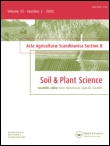
ACTA AGRICULTURAE SCANDINAVICA SECTION B-SOIL AND PLANT SCIENCE
Bridging Science and Practice in Agronomy and Soil ScienceACTA AGRICULTURAE SCANDINAVICA SECTION B-SOIL AND PLANT SCIENCE, published by Taylor & Francis AS, is a distinguished journal dedicated to the fields of Agronomy, Crop Science, and Soil Science. With an impressive impact factor, and categorized in Q2 for both Agronomy and Crop Science and Soil Science as of 2023, this journal is an essential resource for researchers, professionals, and students aiming to advance their understanding of soil-plant interactions and sustainable agricultural practices. Operating since 1992 and continuing through to 2024, ACTA aims to publish high-quality, peer-reviewed research that encourages the applicability of advanced scientific knowledge in real-world agricultural settings. While the journal is not open access, it remains widely accessible through institutional subscriptions, reflecting its commitment to disseminating essential findings and fostering innovation in soil and plant science worldwide. Nestled in the vibrant academic environment of Norway, ACTA AGRICULTURAE SCANDINAVICA serves as a key platform for nurturing groundbreaking research that informs sustainable agricultural policies and practices globally.

Agronomy-Basel
Pioneering Insights for a Greener TomorrowAgronomy-Basel is a leading international journal dedicated to advancing the field of agronomy and crop science, published by the respected MDPI. Since its inception in 2011, this open-access journal has provided a vital platform for the dissemination of high-quality research, featuring innovative studies and reviews that contribute to the understanding of agricultural practices and crop management. With an impressive impact factor and ranked in the Q1 quartile of its category for 2023, Agronomy-Basel has established itself as a premier resource in the realm of Agricultural and Biological Sciences, achieving a commendable rank of #62 out of 406 in its field, placing it in the 84th percentile. The journal targets researchers, professionals, and students who are dedicated to enhancing agricultural sustainability and productivity. Located in Basel, Switzerland, the journal's commitment to open access empowers global accessibility to flourishing agricultural advancements, thus fostering collaboration and innovation across the globe.
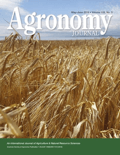
AGRONOMY JOURNAL
Elevating Agronomy: Where Science Meets SustainabilityThe Agronomy Journal, published by Wiley, is a leading platform for cutting-edge research in the field of agronomy and crop science. Established in the United States, this prestigious journal carries the ISSN 0002-1962 and E-ISSN 1435-0645, with its coverage spanning from 1976 to 2024, showcasing a wealth of knowledge over decades. The journal is recognized in the top quartile (Q1) of its category, making it a highly respected source for quality literature, ranking #108 out of 406 in the Scopus database and reflecting a 73rd percentile standing in agricultural and biological sciences. While it operates under traditional access options, its commitment to disseminating valuable scientific inquiry aligns with the objectives of advancing sustainable agricultural practices globally. The Agronomy Journal serves as an indispensable resource for researchers, professionals, and students eager to stay abreast of significant advancements and discussions influencing the future of crop science and agronomic research.
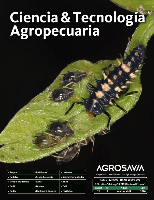
Revista Corpoica-Ciencia y Tecnologia Agropecuaria
Transforming Agricultural Practices through Cutting-Edge Research.Revista Corpoica-Ciencia y Tecnologia Agropecuaria is a premier open access journal dedicated to the dissemination of innovative research in the field of agricultural and biological sciences. Published by CORP COLOMBIANA INVESTIGACION AGROPECUARIA-CORPOICA, this journal has been a key resource for professionals and academics since its inception in 1996, providing valuable insights into the challenges and advancements in agro-technology. As a recognized journal with a Q3 ranking in its category for 2023, it operates with a mission to enhance knowledge transfer and foster collaboration among researchers in Colombia and beyond. The journal is indexed in Scopus, which highlights its commitment to maintaining rigorous academic standards and broadening the scope of agricultural research. With an emphasis on advancing sustainable agricultural practices and technological innovations, Revista Corpoica serves as an essential platform for sharing groundbreaking studies, reviews, and original research that contribute to the growing body of agricultural knowledge. Researchers, professionals, and students alike will find this journal an invaluable tool to stay informed and engaged with the latest advancements in agricultural science.

Bioagro
Advancing sustainable solutions in agriculture and biology.Bioagro is an esteemed academic journal dedicated to advancing research in the field of Agricultural and Biological Sciences. Published by the University Centroccidental Lisandro Alvarado in Venezuela, this journal has made significant strides since its inception in 2008, with a focus on delivering high-quality research publications that address contemporary challenges in agriculture and biology. Recognized for its contributions, it holds a Q3 ranking in the Agricultural and Biological Sciences (miscellaneous) category as of 2023, and it ranks #125 out of 221 in its field, placing it in the 43rd percentile. Although it operates on an Open Access model, Bioagro strives to provide broad access to innovative research, thereby fostering collaboration and knowledge dissemination among researchers, professionals, and students. With a commitment to include a wide range of topics, the journal aims to be a pivotal platform for exploration and dialogue in agricultural sciences, ensuring that key findings reach both scientific and practitioner audiences. Located in Barquisimeto-Cabudare, Lara, Venezuela, Bioagro invites submissions that contribute to the global discourse on sustainable practices and innovations in agriculture.

Agrociencia Uruguay
Empowering Research, Cultivating InnovationAgrociencia Uruguay, published by the Universidad de la República, Facultad de Agronomía, serves as a vital academic platform in the field of agricultural and biological sciences. Since its inception in 1997, this Open Access journal has fostered the dissemination of innovative research findings, promoting collaboration among researchers, professionals, and students interested in agronomy, crop science, soil science, and plant science. Operating from Montevideo, Uruguay, the journal strives to address contemporary challenges in agriculture through the publication of high-quality, peer-reviewed articles. Despite its relatively modest impact factors and rankings in Scopus, positioned in the lower percentiles, Agrociencia Uruguay remains crucial for advancing local and regional agricultural knowledge, thus contributing to global food security and sustainable practices. Researchers are encouraged to engage with the journal's content to further enhance their understanding and explore the rich agricultural landscape of Uruguay and beyond.